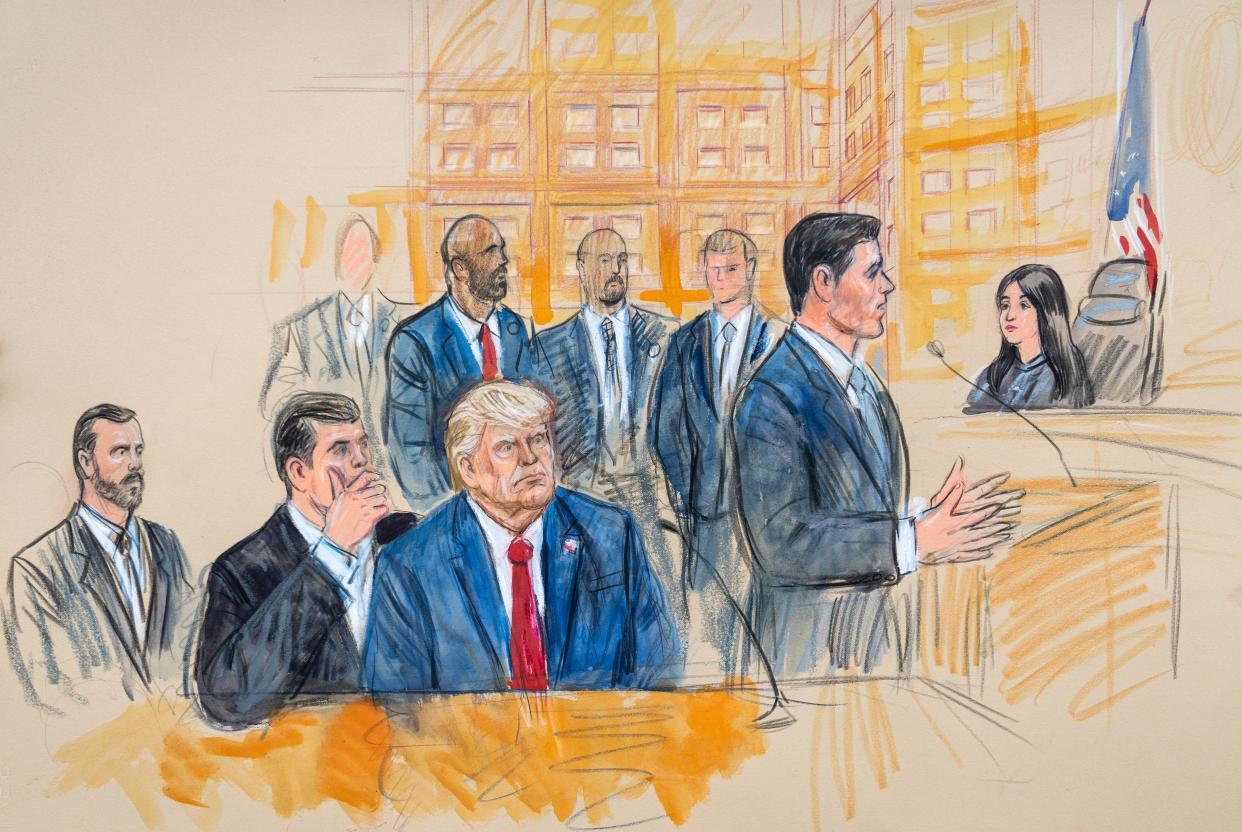What is an indictment? What the legal proceeding means and how it works in the US

In March, Donald Trump became the first former U.S. president to face criminal charges after a New York grand jury voted to indict him in connection with hush money payments.
In June, Trump was indicted once again over his alleged mishandling of classified documents. On Aug. 1, Trump was indicted a third time on accusations that he tried to steal the 2020 presidential election from President Joe Biden.
Now, the former president is facing a fourth indictment. On Monday, Trump was indicted by a Georgia grand jury on conspiracy charges of trying to steal Georgia's electoral votes from Biden after the 2020 election.
But what does this mean? What is an indictment, and how does this impact Trump's run for president? Here’s what you need to know.
What is an indictment?
An indictment is a formal charging document used when it’s believed a person has committed a crime. It contains information on the charges being brought forward against someone, according to the U.S. Justice Department.
An indictment means a grand jury has decided there’s "more likely than not" enough evidence – based on testimony – to move forward with charging a person, according to David Weinstein, a former federal and state prosecutor.
A grand jury does not decide whether someone is guilty or not. Its role is to decide whether prosecutors have given sufficient evidence to formally charge someone. States, generally, only require grand jury indictments for prosecution of serious crimes.
Before a case can move forward in a court, an indictment should be filed, Weinstein said.
In a federal court, all felony cases proceed via indictment.
An arraignment occurs after someone is indicted. An arraignment is when formal charges against the accused are read by the judge. This proceeding is the first time the accused appears before a judge and is told about the specific charges they are facing.
What was Trump indicted for?
Trump faces four indictments:
Trump was indicted by a New York grand jury on March 30.
He is accused of falsifying business records about hush-money payments to two women, including adult film actress and director Stormy Daniels, who tried to sell her story about an alleged affair with Trump. Prosecutors said a $130,000 payment was made to keep Daniels' story from going public during Trump's 2016 presidential run.
Trump faces 34 felony counts in this indictment. He was arraigned on April 4, and he plead not guilty. This trial is set for March 25, 2024, in New York.
Trump was indicted by a federal grand jury in the Southern District of Florida on June 8.
He is accused of mishandling classified documents seized at Mar-a-Lago. Charges against Trump also include obstructing justice, making false statements, and trying to "alter, destroy, mutilate, or conceal evidence," by asking a Mar-a-Lago staffer to delete video footage at the estate.
Trump faces 40 felony counts in this indictment. He was arraigned on June 13. He plead not guilty. This trial is set for May 20, 2024 in Fort Pierce, Florida.
Trump was indicted by a federal grand jury for the District of Columbia on August 1.
He is accused of conspiring to steal the 2020 election from President Joe Biden, ahead of the insurrection of Jan. 6, 2021. He faces four felony counts, including:
Conspiracy to defraud the United States.
Conspiracy to obstruct an official proceeding.
Obstruction of and attempt to obstruct an official proceeding.
Conspiracy against rights.
He was arraigned on August 3. He plead not guilty.
Trump was indicted by a Georgia grand jury on August 14.
He, along with several others, are accused of trying to unlawfully discard President Joe Biden’s win in Georgia during the 2020 presidential election. The indictment is made up of 41 charges against 19 defendants, from Trump to his former attorney Rudy Giuliani and former White House Chief of Staff Mark Meadows.
Can Trump still run for president if he’s indicted?
Yes, Trump can run for president and continue his 2024 campaign.
"Legally speaking, there is nothing to bar a former president from being indicted for a state crime, running for office – even convicted," said Jessica Levinson, founding director of Loyola Law School's Public Service Institute. "It really just becomes an issue of, practically, how could you run the country behind bars, if ever came to something like that?"
According to the U.S. Constitution, there are only three requirements for someone to serve as president:
Must be at least 35 years old
Be a natural-born citizen
Must be a resident of the U.S. for at least 14 years.
Just Curious for more? We've got you covered
USA TODAY is exploring the questions you and others ask every day. From "What is an arraignment?" to "What is a grand jury?" to "Who is running for president in 2024?" we're striving to find answers to the most common questions you ask.
This article originally appeared on USA TODAY: What is an indictment? The legal proceeding explained
